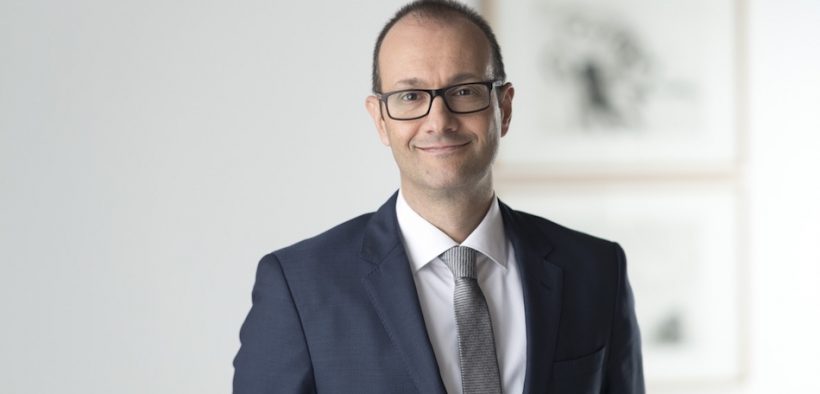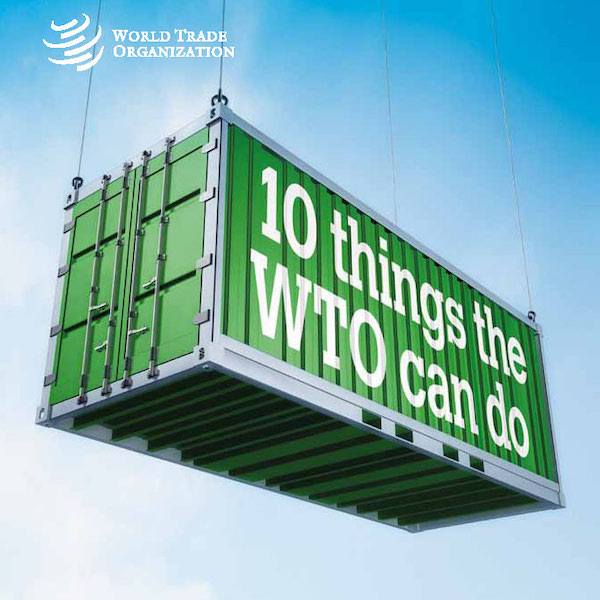Liechtenstein A Credible Centre For Sustainability
Share

Interview with Simon Tribelhorn, CEO of Liechtenstein Bankers Association
CEO Insight: What are the greatest challenges for the Liechtenstein financial center in the year ahead?
Simon Tribelhorn: For Liechtenstein’s banks, Germany, Austria and Switzerland are the most important markets. The economic situation in these countries is highly relevant for us. Due to still a lot of uncertainties in the context of Brexit and the effects of possible trade disputes with the USA, there are quite a number of challenges here to cope with. Furthermore, as an EEA country, Liechtenstein is heavily dependent on politics in Brussels and the respective regulation. The forthcoming election at EU level also harbours political uncertainties, as it is unclear whether the national populist parties will be further strengthened. However, Liechtenstein is celebrating its 300th birthday this year. In its long history as a small state, we have learned how to deal with and adapt to external conditions. Therefore, it is important that we continuously do our homework in the Principality ourselves. For this reason, the Government adopted a forward-looking Financial Centre Strategy in February.
CEO Insight: What are the main objectives of this new Financial Strategy?
ST: The main aim of Financial Centre Strategy is to strengthen Liechtenstein’s attractiveness as an international and innovative financial centre and its perception as a stable and reliable financial centre for the long term. The strategy builds on the path embarked on years ago and has four pillars: conformity, growth, international cooperation and promotion. Firstly, Liechtenstein remains committed to the long-established path of conformity with international and European standards. As a result of its consistent alignment with these standards, the international perception of Liechtenstein as financial centre has improved significantly in recent years. Today, the financial centre stands for stability, long-term thinking, and innovation.
“Today, the financial centre stands for stability, long-term thinking, and innovation.”
However, it goes without saying that a consistently high level of compliance with international and European standards is of crucial importance to the implementation of Liechtenstein’s financial centre strategy and has to be continuously maintained. Secondly and based on the conviction that the future attractiveness of the financial centre will depend even more on its framework conditions, the Government attaches great importance to value creation as another key component of the strategy.
This shall be achieved through supporting innovation and new technologies namely such as blockchain and increasing efforts towards sustainable finance as a key concept of the financial centre. Thirdly, international networking and cooperation is highly important for a small country. Therefore, Liechtenstein is striving for membership in the IMF and is considering a stronger presence in France. Fourthly, a public-private partnership shall be established to further strengthen the perception of the entire financial center.
CEO Insight: Liechtenstein is a pioneer in the use of Blockchain. Do you have any concerns regards its widespread use?
ST: Even though due caution and risk awareness are called for, innovation should not be nipped in the bud because of fear of the unknown. It is important to be aware of the inherent risks and to manage them properly and appropriately. Therefore, the Government has also assumed an important pioneering role in regulation.
“All 11 municipalities have the “Energy City” label, making Liechtenstein the only country in the world to have an “Energy Country” label.”
The so-called Blockchain Act is currently in the legislative process. It is intended to regulate existing and future blockchain applications in a technology-neutral way. The objectives are to create legal certainty and to prevent abuse. They go hand in hand and both is very important for the reputation and a successful development of Liechtenstein and its financial centre.
CEO Insight: In addition to digitisation, sustainability has long been very important for Liechtenstein’s banks. A breakthrough for sustainable investments has long been awaited. Why should it happen now?
ST: Sustainability has indeed been talked about for a long time. For some, it’s an expression of conviction, while for others, unfortunately, it’s merely cool, a fashionable word, or a marketing gag. The meaning of the term has been and sometimes still is severely stretched. That’s why it’s almost become taboo in some circles. I hear from many people that they can no longer stand to hear ‘sustainability’ as a term.
This is unfortunate, because it damages the acceptance and credibility of those who commit themselves and assume responsibility. I am convinced that this was sometimes a reason why the topic did not gain traction in the financial sector before.
“This generation is driven less by material wealth than by values.”
With the Paris Agreement in 2015 the situation has changed dramatically and sustainable investments in the financial sector have really taken off. However, to achieve the set goal of limiting the rise in temperature to 2 degrees Celsius, an additional investment volume of around EUR 180 billion is needed in the EU alone. But sustainability should not be limited just to climate protection. The challenges we face as society are far more multi-layered and complex.
Also in 2015, the United Nations therefore adopted the 17 Sustainable Development Goals (SDGs). According to the consulting firm PWC, the annual global investment volume required to achieve these goals is even USD 7 trillion. Currently, only one seventh of this amount is financed by public funds. This means a substantial portion must come from the private sector. And here the young generation, the millennials, play a major role.
This generation is driven less by material wealth than by values. They are not only interested in short-term performance, but also in the question of whether their money is invested in a meaningful and responsible way. Having said that, the financial sector and trusted private banks in particular can and must therefore play a central role in mobilising and channelling these financial resources.
CEO Insight: Can climate protection be left to the economy alone? The EU’s forthcoming regulatory projects point in the opposite direction.
ST: The record summer of 2018 has clearly shown that climate change is taking place and that measures are urgently needed. And the worldwide youth protests show that politics must get involved and create favourable framework conditions. If you consider the urgency and importance of the goals set by the Paris Agreement and the UN, one has to come to the conclusion that regulation is needed now.
“Sustainability is increasingly becoming a question of credibility. It is fair to say that sustainability belongs to the DNA of the Principality, so to speak.”
The EU is clearly setting the pace in the area of sustainable investments. A huge regulatory package is in the legislative process. It aims to reinforce both, the Paris Agreement and the SDGs. It consists of four concrete proposals: First a unified taxonomy or an EU classification system of sustainable financial products to clarify what is and what is not sustainable.
Second the obligations for institutional investors to integrate ESG criteria into their investment decisions. Third the development of low-carbon benchmarks, and fourth adjustments to all securities regulations to take into account and integrate ESG criteria into the investment and advisory process. So the momentum is enormous. I believe that many people still underestimate both the scope and the speed.
CEO Insight: Everyone is talking about sustainability. Why go to a bank in Liechtenstein?
ST: Sustainability is increasingly becoming a question of credibility. It is fair to say that sustainability belongs to the DNA of the Principality, so to speak. All 11 municipalities have the “Energy City” label, making Liechtenstein the only country in the world to have an “Energy Country” label. The label symbolises how sustainability is broadly enshrined in policymaking and the population and it reflects very well that Liechtenstein has traditionally placed particular importance on acting in a sustainable and responsible way taking into account environmental aspects.
Having said that, we at the LBA speaking for all our members consider sustainability as a cross-cutting topic affecting the entire value chain and all levels of hierarchy. Only if sustainability is integrated and put into practice across all areas can an institution act in a credible way.
The business models of our member banks distinguish themselves from short-term banking. Hence, for our member banks, sustainability has become an integral part of their corporate culture; this is demonstrated not just by the wide-ranging commitment through their own charitable foundations, the membership of all three large banks in the two climate foundations Switzerland and Liechtenstein, a wide range of energy efficiency measures including climate neutrality, or the high corporate governance standards.
It is also firmly anchored in the core business of the banks. Research from 2016 shows that even the conventional funds of Liechtenstein’s banks have already achieved an average ESG rating of almost 60 percent. Furthermore, LGT has been taking on a pioneering role with the introduction of a sustainability rating. This makes sustainability “measurable” – one of the major challenges for investments in this area.
And last but not least, in 2018, we joined as LBA the international network “Financial Centers for Sustainability” (FC4S) as one of more than 20 financial centres from all over the world. Against this backdrop, we are currently developing a dedicated sustainability roadmap based on a comprehensive self-assessment across the entire banking sector.
CEO Insight: What is your vision for the Liechtenstein financial centre?
ST: I would like Liechtenstein to further expand its international leadership role in the two areas of digitisation and sustainability. We are “first movers” with the aforementioned Blockchain Act. We should do the same in the area of sustainability. Interestingly, digitisation and sustainability are increasingly behaving like twins.
Progressive digitisation will simplify many things. On the one hand, it will help us to automate processes, reduce costs and achieve positive economies of scale. On the other hand, the fact that the effective impact of an investment or portfolio in terms of ESG factors was difficult to quantify and measure was an obstacle for a long time. With the help of digitisation, this will be much easier and better in the near future. So digitisation is the “how”, sustainability is the “why” and Liechtenstein is the “where” since it is perfectly positioned to facilitate both.
About the Liechtenstein Bankers Association
Established in 1969, the Liechtenstein Bankers Association is the domestic and international voice of the banks operating in and out of Liechtenstein. It is one of the country’s most significant associations and plays a key role in the successful development of the financial centre. Member interests are pursued in accordance with the principles of sustainability and credibility.
As a member of the European Banking Federation (EBF, www.ebf.eu), the European Payments Council (EPC, www.europeanpaymentscouncil.eu) and the European Parliamentary Financial Services Forum (EPFSF, www.epfsf.org) the Liechtenstein Bankers Association is a member of key committees at the European level and plays an active role in the European legislation process. Since 2017, the LBA has also been a member of the Public Affairs Council (PAC, www.pac.org) with offices in Washington and Brussels and since April 2018 of the international network Financial Centres for Sustainability (FC4S, www.fc4s.org). Registered in the EU Transparency Register with number: 024432110419-97


























